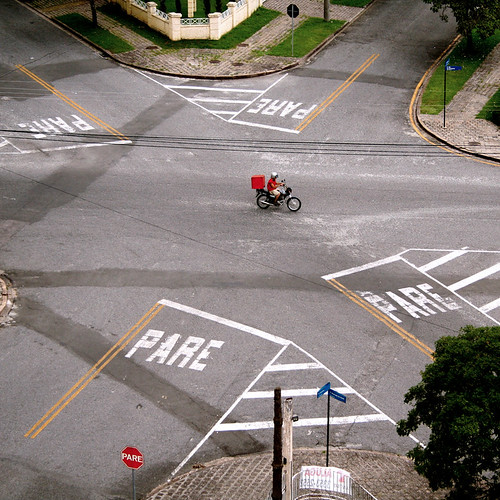 |
| wikipedia.org - Childe's_Tomb |
Thoughts on Roger Pielke Jr. | Stand-Up Economist - Yoram Bauman
As an economist, I found Roger’s lack of discussion of climate impacts to be extremely disturbing. If—totally hypothetically—the science said that hitting 450ppm would cause the planet to explode, I’m pretty sure Roger’s talk would have looked different. (At least I hope so!) The economic point here is that cost-benefit analysis has two halves—costs and benefits—and you can’t do it by just talking about one of the two halves. Why Roger failed to talk about both halves has me totally perplexed and leaves me questioning how much he actually knows about economics. (For the record, he’s not an economist, so I think this is a legitimate question, not an insulting one. He’s a political scientist, but his talk was not about the intersection of science and politics; his talk was fundamentally about economics.)
RPJr's rhetorical trick "there is a lot of misunderstanding and misrepresentation displayed in this post... Fortunately, my new book covers all of these points so that there should be no ambiguity in my views." is annoying.
As if a book is a tomb for the ideas of a public intellectual, and it makes them incapable of stating plainly their views in public forums.
Y. Bauman refuses to play ball:
"Okay, here are some questions: (1) What did you say about the tenets of climate science? (Then I’ll try to get a video of your talk and see if I owe you an apology.) (2) How would you quickly characterize the main points of your talk? (3) Since you note above that you “did not discuss costs or benefits”, I’m curious about why. Do you not think cost-benefit analysis is important? (4) How (if at all) would your talk have been different if the scientific consensus was that 450ppm would destroy the planet?"Is RPJr so craven as to simply "hit-and-run" from this forum, now that the questions are specific? Stay tuned!
~~~~~~~~~~~~~~~~~~~~~~~~~~~~~
Related posts:
- The Post-Email-Hacking phase of climate denialism
- Complicity and Sympathy for Comforting but False & Dangerous Ideas
- It is time for some humility - Oh Lordy...
- Is using the term "Denialist" unfair?
[Edit 7/31/10]
To my surprise, RPJr replied; his answers:
1. I used a “bathtub” model to describe the challenge of stabilization and I argued that everyone in the debate on all sides agree that CO2 has impacts. Where there are debates is when those impacts become dangerous (the height of the bathtub, e.g., 450 ppm) and the consequences of spilling over. Such debates are of course legitimate.
2. Three points: A. Targets and timetables for reducing emissions now being discussed or even enacted in law (e.g., in the UK) are not credible (I think I proved this), B. Stabilizing concentrations requires advances in technology deployment and innovation rather than GDP contraction (shown a bit, but largely asserted), C. Acccelerating decarbonization requires much greater public investments in technology (asserted not proven).
3. I’ve written a lot of CBA, and teach it as well. This talk was not about CBA, but policy evaluation. I am happy to discuss the topic.
4. I have no idea.
 |
| flickr.com/photos/psd/1806225034 "Moral Compass" by "psd" |
My comments to (1): "Such debates are of course legitimate." RPJr has a problem with the debate coming to provisional conclusion, on the side of the science and the moral question of future generations being left a livable world - a provisional conclusion where we begin work on drastically reducing carbon emissions and mitigate previous carbon emissions, where GDP takes a major haircut if need be. RPJr's fretting and fussing is consistent with the moral question of future generations being left a livable world always taking a backseat to today's GDP/standard of living - but he doesn't have the guts to admit that, or he realizes that if his cravenness is so obvious, he gives up any chance of political effect.
My comments to (2): Actually, this is the first sensible thing RPJr has ever said, to my knowledge. It is very true: we have exactly zero experience with asking citizens to voluntarily cut their standard of living for the moral outcome of future generations being left a livable world. "Warmists", it can be argued, don't have the guts to admit this, or they realize that if they are so truthful they give up any chance of political effect.
My comments to (3): Why talk to economists about policy evaluation without reference to cause and effect? That was Y. Bauman's original puzzlement.
My comments to (4): Pathetic. Again, RPJr cannot deal with science predicting catastrophe (catastrophe, because it is hard to imagine the moral monsters that could cheerfully leave future generations an unlivable world), because his goal is that he moral question of future generations being left a livable world always taking a backseat to today's GDP/standard of living. That can be used to perfectly predict his reaction to anything.















